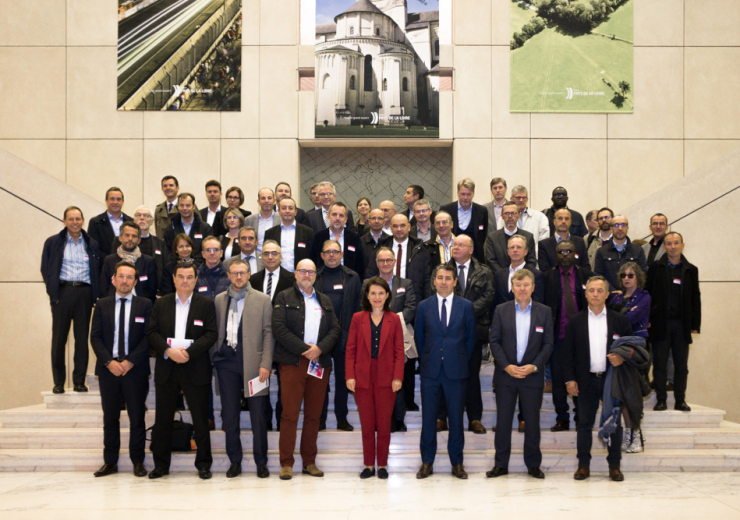Doing business in France can be a rewarding experience, but it is important to understand the cultural differences that can affect professional relationships. In this article, we will explore the essential practices and cultural norms you should be aware of, especially if you are from the UK, the USA, Japan, or the Nordic countries of Europe.
1. Understanding French business culture: key insights
French business culture is characterised by a strong hierarchical structure and a meticulous approach to precision in business, reflecting a deep appreciation of order and authority within organisations. Understanding these nuances is essential for any professional hoping to integrate and succeed in this environment.
In most French companies, roles and responsibilities are clearly defined. Employees are expected to respect and follow this organisational structure, which directly influences decision-making- a deliberate and meticulous process in which final decisions are often in the hands of senior management. This hierarchy underscores respect for order and authority that is fundamental to understanding the internal workings of companies.
Communication in the French business environment is formal, especially in initial interactions. It is therefore essential to understand the difference between the two forms of saying you: “tu” (informal) and “vous” (formal). Greetings are polite, with a firm handshake, and the use of professional titles is common until one is specifically asked to use first names. During meetings, it is unusual for subordinates to interrupt their managers, and decisions are expected to be discussed privately before being presented to the group.
A notable feature of working life in France is the balance between personal and professional life. Although working hours can be long, there is a strong emphasis on maintaining a healthy balance. This is reflected in labour laws such as the 35-hour working week, generous holiday entitlements and the cultural importance of lunch breaks, which allow employees to take a break from work and socialise. This balance is valued and protected within the legal and cultural framework of the country.
2. Britain vs France: contrasting business etiquette
Formality
Formality is one of the most striking contrasts in the way the French and British interact. In the UK, it is common to adopt a more relaxed tone after initial interactions, even in professional settings.
In France, however, formality prevails throughout the relationship, from language to dress code, maintaining a continuity that extends to all aspects of business communication.
Negotiation
When it comes to negotiating styles, there are significant differences. British professionals tend to be more pragmatic, seeking effective compromises and often using humour as a negotiating tool.
In France, however, negotiations are characterised by a more thoughtful and long-term consensus-building approach, involving a more detailed and lengthy process.
Time management
In terms of time management and punctuality, the British are known for their rigorous adherence to schedules, focusing on maximising the efficiency of each meeting.
In France, while punctuality is valued, especially in formal meetings, interactions may last longer than expected, reflecting a more flexible approach to time that allows for deepening relationships and ensuring mutual understanding.
Social interactions
Finally, the importance of interpersonal relationships in the French business context is noteworthy. In contrast to the more direct and impersonal British approach, there is a strong emphasis in France on establishing a personal connection before discussing business matters.
This often involves sharing meals and spending time getting to know each other, which is seen as essential to building lasting business relationships.
3. USA and France: navigating business practices and cultural norms
In the business world, the differences between the USA and France are marked and significant, particularly in terms of hierarchy, management style, communication, and decision-making processes.
Hierarchy
Starting with hierarchies, we see that the US encourages a relatively flat organisational structure that encourages collaboration and open communication at all levels, whereas the structure in France is decidedly more hierarchical.
Even though this has been changing in recent years, French managers tend to place high importance on authority and expect their directives to be followed without the need for justification. This contrasts with the American style, where employees are encouraged to be proactive and take an active role in decision-making, fostering a more dynamic and innovative environment.
Management style
In France, decision-making can be a slow and deliberate process, with a strong emphasis on reaching consensus and considering all perspectives before reaching a conclusion.
In the US, by contrast, decision-making tends to be faster and results-oriented, prioritising efficiency and effectiveness without unnecessary delay. This difference in pace can lead to frustration in Franco-American interactions, where each party may perceive the other as either being in a hurry or overly cautious.
Communication
Communication in French companies tends to be more formal and subtle. In the USA, on the other hand, communication is direct and to the point.
Americans value clarity and conciseness, to minimise misunderstandings, but this can sometimes come across as too direct or brusque to their French counterparts, who prefer a more nuanced and diplomatic approach. There is also a contrast in the perception of success and work ethic.
Work-life balance
In France, professional success is strongly linked to the balance between work and private life, with stricter working hours and more time off.
In the US, on the other hand, greater commitment in terms of working hours and availability is valued, with a strong focus on performance and career progression.
4. France, Japan, and Nordic countries: key cultural contrasts in business
Exploring cultural differences in business between France, Japan, and the Nordic countries, reveals significant contrasts in hierarchical structure, formality, and meeting protocols. Understanding these differences is vital for navigating these diverse business environments.
Japan
In Japan, the business culture is characterised by a rigid hierarchical structure and a high level of formality.
Formal greetings and respect for hierarchy are essential in all professional interactions. This respect is demonstrated through the use of honorific titles and indirect communication, where direct conflict is avoided to maintain group harmony.
Compared with France, where hierarchy is also notable but with a tendency for more direct communication within hierarchical levels, Japan maintains a more distinct separation between ranks.
Formality in Japanese meetings is reflected in the meticulous exchange of business cards and the rituals at the start of meetings, which usually include a formal introduction of all participants.
In contrast, in France, although meetings begin with formal protocol, they can quickly adopt a more personal and direct tone, especially when there is already an existing relationship between the parties.
Nordic countries
The Nordic countries, such as Sweden and Denmark, are characterised by a focus on equality and transparency in the work environment.
In these cultures, corporate hierarchy is much less pronounced than in France, favouring a more inclusive and participative style of leadership. This is reflected in the practice of decision-making by consensus, where each team member has a voice, as opposed to France, where decisions tend to be more centralised.
In terms of leadership style, the Nordic countries value the authenticity and accessibility of leaders, who often interact with their teams on a more equal footing. This contrasts with the more formal and distant style of French leaders, who make a clear distinction between their roles and those of other team members.
Germany
In Germany, the business culture focuses on precision, planning and meticulous attention to detail. Meetings are characterised by their structure and efficiency, with every aspect of the agenda covered in depth.
In contrast to France, where the flexibility of meetings allows the agenda to adapt to the flow of the discussion, in Germany each point is expected to be dealt with precisely and according to plan.
This German approach to precision also manifests itself in punctuality and adherence to schedules, aspects that are equally valued in France but applied with less rigour. While punctuality is valued in both countries as a sign of respect and professionalism, Germany tends to have less tolerance for deviating from agreed times.
5. American companies in France: adapting to local business culture
The presence of American companies in France provides a fascinating case study in managing cultural differences in an international business environment.
Companies such as Alphabet (Google) and Microsoft have had to navigate the French regulatory and cultural landscape, adapting their strategies and operations to comply with the law and, above all, to meet French cultural expectations.
Google in France: Google has had to adapt to the more hierarchical French corporate culture. Unlike the open and collaborative culture of American offices, decision-making in France is more centralised and interactions are more formal.
Microsoft in France: Microsoft has had to adjust its pace, as decisions in France take longer. The process is more focused on building consensus, whereas, in the United States, the emphasis is on speed and efficiency.
We are confident that you will eventually fully adapt to the French business culture and we are here to help you if needed. Contact us for more information.


 日本語
日本語  Français
Français 



